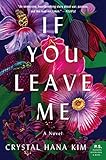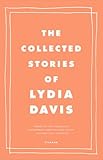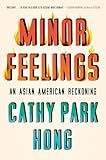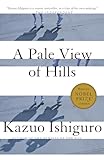I met Sanaë Lemoine in graduate school nearly a decade ago, when we were both in our 20s. We often spoke about literature, writing, and teaching, and yet, we were never in workshop together. I was always curious about her writing, so when I received an early copy of her debut novel, The Margot Affair, I eagerly began. Reader, I gasped when I finished the first page. I then read the page again—aloud this time. Just take a look at this opening line: “On stage my mother was her truest self.” I love the seeming simplicity here, the power and confidence beneath those words.
Again and again, Lemoine’s sensuous sentences surprised me. The Margot Affair, out now from Hogarth, is the story of Margot, the secret daughter of a French politician and actress. At its heart, it’s about our public and private lives, family secrets, and what happens when our desire for acceptance supersedes our need for caution.
Lemoine and I had planned to meet in person for this interview, but the pandemic altered our plans. Over the phone, we discussed debuting during this time of uncertainty, transforming the personal into fiction, and the connection between language and home.
Crystal Hana Kim: This is a complicated, stressful time for all of us. I feel deeply for writers, particularly debut writers, who have books coming out now. How have you been feeling about the publication of The Margot Affair during the time of the coronavirus?
Sanaë Lemoine: I always imagined that the weeks leading up to book publication would be a stressful and emotional time in my life, no matter what else was happening around me. The thought of having to appear in public to talk about my book, of having strangers read it for the first time, especially as someone who is shy, was already causing me anxiety. But now, those stressors have either shifted or heightened. Maybe the most difficult thing is finding space to think about the book and self-promotion. I was sick for a few weeks, and during that time I wanted to curl up on the couch and forget I had ever written this novel! Some days, talking about the book or promoting myself feels near impossible, or at the very least, fraught.
I am hopeful in the sense that on a personal level, books and especially novels have always provided me so much solace, especially during difficult times of my life. They were incredibly soothing and comforting, especially in their ability to transport me to other worlds. I hope I can provide that experience for someone else.
The other thing I’m grateful for, which feels like a relief, is that I finished writing the book months ago. In a sense, the hard work is behind me. I don’t know about you, but lately I’ve found it more difficult to generate creative work, especially fiction. I’m trying to imagine what it would be like to be in the middle of a project with a deadline looming over me. I think it would be hard to find the same focus and energy.
CHK: I feel the same way. I’ve found it harder to have the sustained focus to write fiction. Yet, that’s why it’s so important to celebrate your book. Writers put years into their work. Art is critical during times of isolation and uncertainty. For those who are unfamiliar, can you tell us what your book is about?

SL: The novel is set in contemporary Paris and is the story of a 17-year-old girl named Margot. She is the hidden daughter of a longstanding affair between a French politician and a well-regarded stage actress. Margot’s father divides his time between his official family and hidden family. Margot has spent her entire life yearning to be recognized by her father as his legitimate daughter. The summer before her last year of high school, when the novel begins, she meets a journalist and makes the impulsive, reckless decision to reveal her father’s identity to him. This shatters her world and reconfigures the dynamics of her family. The novel takes place in the aftermath of this reveal. It charts the relationships that Margot forms as she’s confronted with the consequences of her actions.
CHK: When did you start writing this book? What was the process like?
SL: So long ago! I started writing the novel in my early 20s, and now I’m 30. It was my first year of the MFA at Columbia. I found myself writing stories that circled around the same characters and themes, that all took place in the same world. I kept returning to this character, Margot, who would eventually become the narrator of the novel. But it was a slow process. There was one class at Columbia that was really instrumental, a year-long novel workshop with Victor LaValle. It was his first year teaching this class—it was a kind of pilot program. His thinking was that it’s difficult to workshop a novel in one semester by only looking at excerpts of 20 or so pages at a time. He wanted us to workshop 50 to 100 pages so we could tackle structure, character arc, and plot. Several of us were writing interconnected short stories as opposed to novels, and without really noticing what we were doing. He helped us understand how a novel is made up of tension and plot.
After the MFA, I continued writing the novel for five to six years. I was working full time, so the way I wrote was quite on and off. There were several rounds of rewriting from scratch on my own, then a few deep revisions with my agent, and finally edits with my editor. The novel went through so many iterations. There’s a part of me that thinks I could have endlessly revised it.
When I think about the process of writing the book, what’s most interesting to me is how it evolved as I went from my early 20s to my 30s. There’s this interesting thing that happens where you as the writer are changing in important ways, but the fictional world you are working within is quite contained and restricted. My narrator is young, and the novel takes place over the short time frame of one year. I could feel myself becoming restless and wanting my narrator to also grow with me, make wiser choices, but instead I had to stay in her world, refine it and dig deeper into the questions I was exploring.
CHK: I know that Victor LaValle is always impressing upon students the importance of plot, which I don’t think is discussed as much in the MFA. A catalyst that drives your book is that Margot realizes her own invisibility as the daughter of this secret relationship. She decides to take action. How did you come up with the plot points of this book?
SL: Plot doesn’t come naturally to me. It’s not how I create a fictional world or what drives my writing. The plot for this book was like pulling teeth. My approach to writing is through characters, scenes, and observations. For a long time, my novel just read as a series of scenes where nothing much happened, and the plot points that I believed were there were so subtle that I don’t think anyone else could pick up on them. One of the most helpful exercises Victor had us do in the novel workshop was a reverse outline. We had to break down our book by chapter to look at what was happening scene by scene—whether there were gaps and missing connections, whether we were exploring the consequences and repercussions of significant events.
The other piece of advice that has stayed with me is something that he said—I’m forgetting how he phrased it—but it was something along these lines: when you come to the end of your novel, you want to think about where your main characters land. Who is safe and unsafe? Who needs protecting and defending? Who protects who? That was useful in thinking about the character arc as a journey, especially for this novel which has a coming-of-age element.
CHK: I love that advice; I’m going to hold onto that as I write.
 SL: Yes, it gave me shivers. I feel like you really do that in your novel, If You Leave Me, perhaps subconsciously. At the end, you have a clear sense of who is safe, who is well, and who isn’t.
SL: Yes, it gave me shivers. I feel like you really do that in your novel, If You Leave Me, perhaps subconsciously. At the end, you have a clear sense of who is safe, who is well, and who isn’t.
CHK: Thank you. I want to talk more about the themes in your book. The Margot Affair examines issues of power, sexuality, exploitation, and the secrets we keep from those around us. Were you thinking actively about these issues while writing or did they form over time?
SL: Yes and yes. I was thinking about these themes early on. My entryway into the novel was actually imagining a friendship between a ghostwriter and a teenage girl who happens to be the illegitimate daughter of a politician. Together they start writing the daughter’s memoir. From the beginning, I was interested in family secrets and what happens when those secrets are spilled, especially when the stakes are so high, and when they move beyond the private sphere of the family.
I was also interested in exploring this relationship between a 17-year-old girl who is learning how to exercise her independence and coming into her own, and this older woman who is already established in her career. I wanted to understand the dynamic between these two characters, what their own desires were, and how they would fuse and conflict.
As the novel went on, I became more drawn to the question of Margot’s agency. I wondered what it would be like for this young woman who is between adolescence and womanhood, to go from invisibility to visibility. Why would she have made that decision and how would she grapple with the repercussions?
Until a much more recent draft, Margot wasn’t the one to spill the secret of her father’s identity. For a long time, I resisted that—it’s obviously the more interesting and complicated choice because if she’s the one who breaks the silence, then she has to confront the consequences of that action. It’s a decision that encapsulates that time in her life, where on the one hand, she feels wise and believes she understands the world, especially because she’s lived this different life, but at the same time, she’s naive and there’s a lot she can’t anticipate or see. I wanted to capture that contradiction in her.
CHK: What were the personal, literary, or cultural inspirations for The Margot Affair?
SL: On a personal level, I was inspired by events in my own life. My father hid a second family from my mother and me for several years. I was 21 when he told me about them. My parents had started the process of divorcing. That same summer, coincidentally, I was in Paris working as a researcher for a journalist who was writing a nonfiction book on France through the lens of seduction. One of my assignments was to read a novel written by the daughter of former French president François Mitterrand. He had an illegitimate daughter whose identity was only revealed to the public when she was 19. This daughter, Mazarine, became a novelist.
I was drawn to her novel, and looking back, it’s not that surprising why, but in the moment I’m not quite sure I connected the dots. There’s something that I loved in the way she portrayed the intimate father-daughter relationship behind closed doors. It was less about him as the president of France and more about their bond, away from the public gaze. At the same time, my family was going through a complete transformation. A couple of months later, I started writing what would become The Margot Affair.
What I can now see, and maybe it wasn’t fully formed at the time, was that I was taking a private upheaval that I was experiencing with my parents and exploring it in a heightened way by raising the stakes.
CHK: We were talking about your handling of plot, but the language is also so beautiful in this book. I underlined all throughout my reading. Can you tell me more about how you approach language? I know you’re also fluent in French and Spanish; do those tongues affect your writing in English?
SL: The way I approach language is to write longhand. I love writing on paper; I don’t always have the time or patience, and I didn’t write the entire novel longhand, but I find that writing by hand slows me down. It opens more possibilities for images and sentences that lead me to unexpected places. I’m not someone who is constantly tweaking sentences and word choices when I’m revising, so I think it’s really helpful for me if I can slow down during the drafting process. When I can allow myself to be led by the writing more, there’s something magical that can happen.
The truth is that I’m self-conscious about languages, and I haven’t really spoken to anyone about this. I think I’m just formulating it for myself thanks to your question. As background, my father is French, my mother is Japanese. She raised me and my brother speaking Spanish because she spent most of her adult years in Argentina, and she’s most comfortable in Spanish. Until I was four, I spoke exclusively French and Spanish at home. Then, I moved from Paris to Melbourne and was put in an Australian school, where I first learned to read and write in English.
We moved back to France when I was 12, and I found it difficult to assimilate into the French schooling system. I had to learn French grammar and spelling from scratch. I was at a strict Catholic private school for a year, and the students would tease me for not being completely fluent, the teachers would read my tests aloud to comment on my spelling mistakes. It was humiliating. I’d come home in tears every evening. The greatest challenge was that French literature, unsurprisingly, was my favorite subject. I loved to read and write, so I was very motivated to do well in that class. I worked tirelessly to make up for lost time. But even today, I’m most comfortable in English.
Specifically, in writing this novel, I had a lot of fun playing around with French and English, especially when I was stuck in dialogue. For instance, I’d say the sentence in French and then translate back into English. It gave me more flexibility in terms of images and metaphors. I felt like it allowed me to play with word choice in a way that was perhaps more liberating. That felt true to the book, which is written in English but presupposes that you as the reader will suspend your disbelief and imagine that all characters are speaking French.
CHK: That’s so interesting because I think a lot of people in America want to know more than one language, and would perhaps be envious of your knowledge.
SL: It’s of course such a privilege to have learned languages without really trying, aside from when I was learning how to read and write in French. I guess it’s always going to be something that’s linked to my sense of self and identity, not feeling quite French or Japanese or American, and trying to make sense of my heritage, and whether your language, or the language you feel most comfortable in, defines who you are and your sense of home. I struggle with the idea that English is the language I’m most comfortable speaking and expressing myself fully in—my language of comfort. Sanaë is a Japanese name and is easy to pronounce in French and Spanish, but impossible to say properly in English. And France as a physical place still is so much my home, even though my parents no longer live there. When someone speaks to me in French, or I read a French book, or watch a French movie, I feel that indescribable pull towards home. When someone says my name in French (or in Japanese, of course), I think: Oh, that’s me.
CHK: Let’s talk about the delicious food-oriented details in this book. I noticed that you have a “What Margot Ate” section in your website, with recipes from the novel. How has your cooking and editorial background influenced your writing?
SL: Food has always been a great passion of mine along with writing. After I graduated from the MFA at Columbia, I started working in a test kitchen and then as a cookbook editor at Martha Stewart and Phaidon. What’s funny is that I didn’t start out writing a book about food, but of course it managed to seep into the world of the novel. Food is a vehicle of communication for the characters—it’s a way that they show their love for one another. For example, Margot’s mother, on her daughter’s birthday every year, prepares hot chocolate. It’s such a simple thing; she’s not a woman who enjoys cooking, but it’s this ritual she does year after year. She doesn’t tell Margot that she loves her, but this act is one of true affection and care.
The relationship between Margot and her father is also centered around food. He is someone who loves to eat, enjoys going to restaurants, and has imparted that love to Margot. Food is sometimes used as a tool of seduction. Early on, Brigitte, a ghostwriter who befriends Margot, invites Margot into her home for afternoon tea. She serves a homemade pear clafoutis. When Margot walks into her home, she smells butter and caramelized pears. There’s something immediately exciting and comforting in that.
I’m always thinking about what my characters are eating and cooking when I write about their world. It seems just as important as what they’re saying to each other, maybe because that is how it is in my own life. When I was thinking about building the world of the novel beyond the novel itself, I thought about writing recipes from the book. I took the different dishes that appear throughout and transformed them into recipes, in case readers would want to recreate them in their homes. (You can find a few on my website.)
CHK: I started the with a somber question about the pandemic, so I’d like to end on a more hopeful note. During this strange period of sustained crisis, where are you finding joy? What kind of art sustains you?



 SL: On a very basic level, what has sustained me is my love of cooking and food. That’s something that I was mostly able to do even when I was sick. I miraculously didn’t lose my sense of taste or smell, and I think there’s a god out there because I had every other Covid-19 symptom! Especially for a writer, I find it wonderful to have that balance, to be able to stand in the kitchen and make something with my hands, and then see and taste a concrete result. I feel so lucky to be able to do this in a low-stakes way in my kitchen day after day.
SL: On a very basic level, what has sustained me is my love of cooking and food. That’s something that I was mostly able to do even when I was sick. I miraculously didn’t lose my sense of taste or smell, and I think there’s a god out there because I had every other Covid-19 symptom! Especially for a writer, I find it wonderful to have that balance, to be able to stand in the kitchen and make something with my hands, and then see and taste a concrete result. I feel so lucky to be able to do this in a low-stakes way in my kitchen day after day.
In terms of turning to art for comfort, I was finding it hard to read early on. Now my mind has calmed down a little bit. When it was difficult to turn my attention to novels or longer forms of writing, I picked up The Collected Stories of Lydia Davis. They’re so brilliant. In a sketch or couple of words, she’s able to conjure an entire world. Her stories have the depth and feeling of novels. I fell in love with her writing all over again. My favorites, unsurprisingly, are the ones with food, like “St. Martin” and “Kafka Cooks Dinner.”
I’ve been reading more nonfiction lately. I’m reading Minor Feelings right now, which I’m really enjoying. I don’t usually read as much nonfiction, but I’m feeling very energized by it. I also find myself returning to novels that I’ve already read, especially books that transport me to another place. I wonder if other writers are doing this as well. For example, Yoko Ogawa and her strange short novel Hotel Iris, which I’ve now read several times. I also never tired of Ishiguro, specifically his first novel, A Pale View of Hills. I love his ability to capture a feeling, and his sentences feel spun out of magic.
Bonus Links from Our Archive:
— A Year in Reading: Crystal Hana Kim
— What Are We Willing to Sacrifice? On Crystal Hana Kim’s ‘If You Leave Me’
— Lucy Tan and Crystal Hana Kim in Conversation









